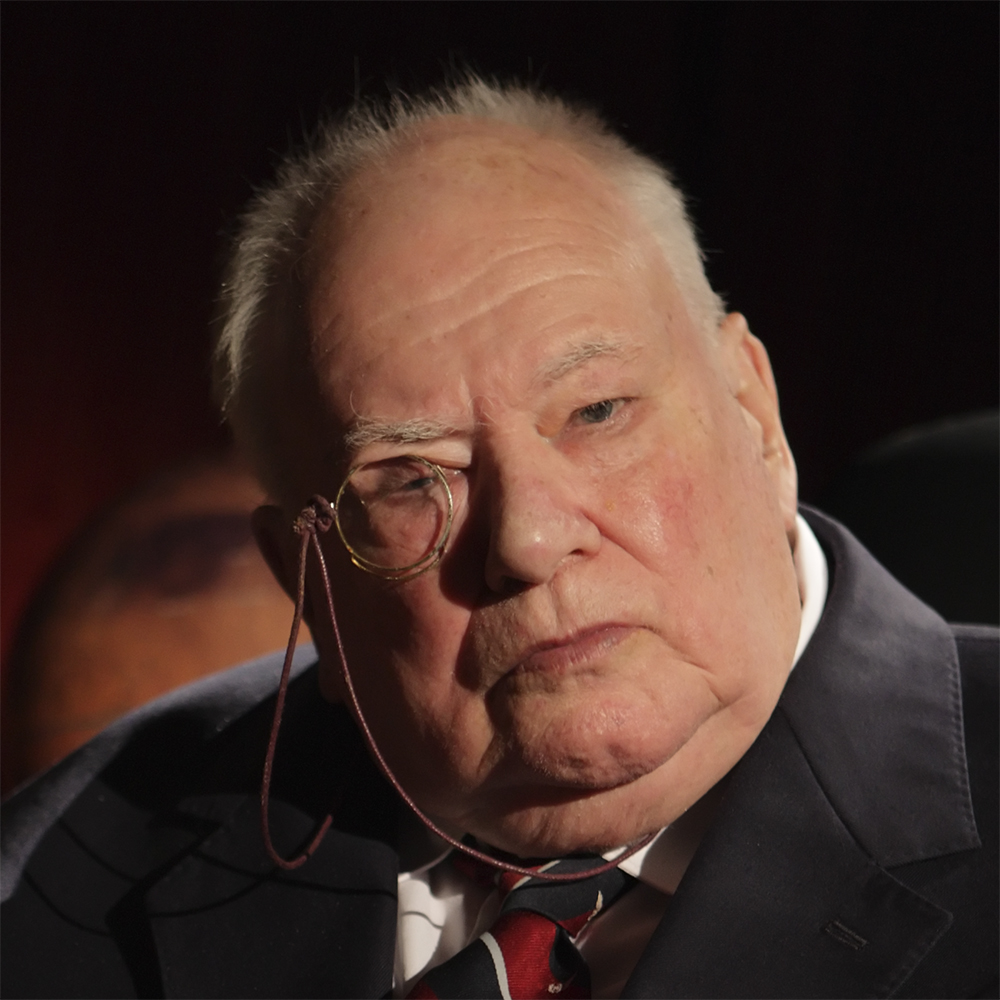Born in Oldland Common, Gloucestershire, in 1913, Bernard Lovell attended grammar school in Bristol.
He studied physics at the University of Bristol and was awarded his PhD in 1936.
In the same year, he joined the staff at the Department of Physics at the University of Manchester – though when it was first suggested that he should apply to Manchester, Lovell replied that Manchester was too dark and too wet, and he would much rather play cricket at Bristol!
Cricket was one of his greatest interests and he was a very capable player, although he never had enough time to play as much as he’d have liked to.
At the outset of the Second World War he was busy with studies on various projects, one of which was codenamed H2S – a radar-assisted ‘blind bombing’ system designed to help pilots find their targets.
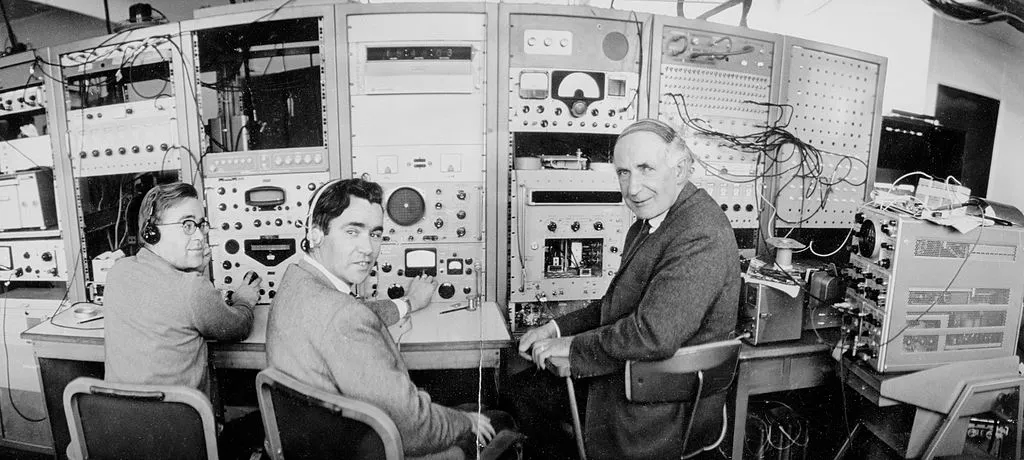
I suppose I was one of the first to test this (I was then a navigator in the RAF’s Bomber Command) and I must admit that during my early forays I was decidedly sceptical about its potential.
Lovell, however, soon realised that it was of immense value.
The same system could detect submarines moving below the surface of the sea and it is certainly true to say that Lovell’s work was equally useful in this regard.
This was the height of the German U-boat campaign, which had inflicted heavy losses upon British vessels carrying vital cargo across the Atlantic.
Apparently, Hitler confessed that a "temporary setback in our U-boat campaign is due to a single technical invention by one of our enemy scientists".
Had the Germans been able to continue and increase their U-boat attacks, the outcome of the war could have been very different.
Listening to the Universe
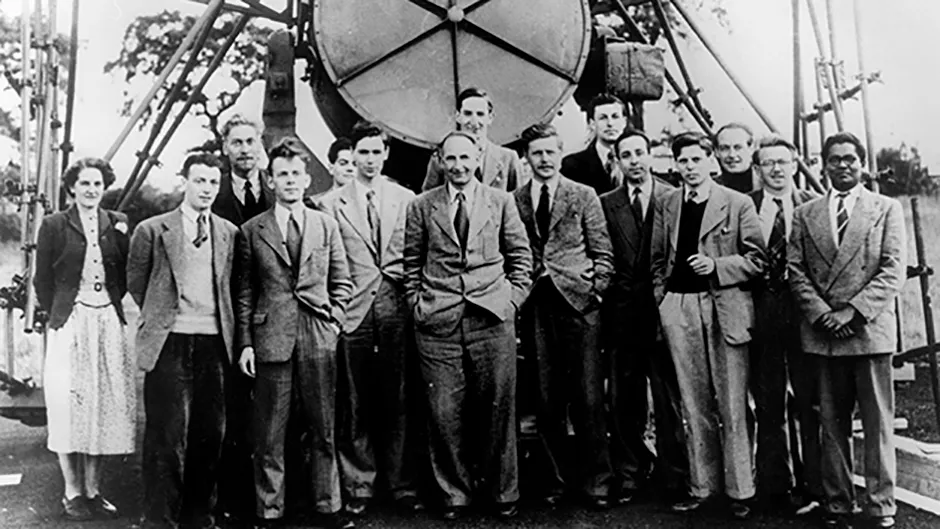
Lovell became involved in research into cosmic rays but found that he was handicapped by radio ‘noise’, so he transferred himself and all his equipment to Jodrell Bank, a remote outstation.
His first great discovery was that ‘sporadic’ meteors (those not included in any meteor showers) are from the Solar System, and not from outer space as had been believed.
I remember well the time when Jodrell Bank was just a grassy bank and a number of us were lying on our backs plotting meteor trails!
Lovell’s main work involved studying radio waves coming from beyond the atmosphere.
This was a branch of science that was only just beginning and because of Lovell’s work, Manchester University appointed him as its first Professor of Radio Astronomy.
Lovell wanted to build a radio telescope far larger than anything previously attempted.
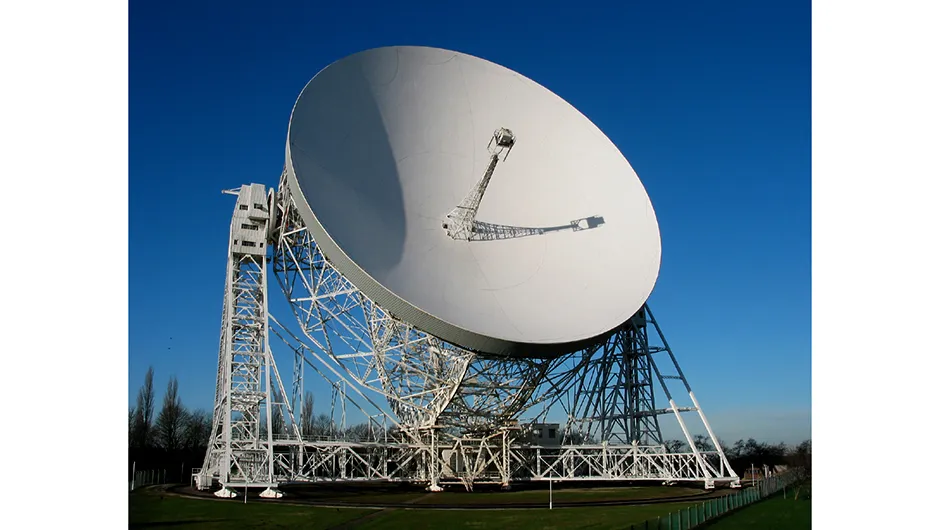
He gained the university’s agreement and was given what seemed a reasonable budget.
However, as the building of the telescope proceeded it became clear the cost would be far greater than anticipated.
Lovell was unable to cut it down substantially, and this was not well received by the university – at one stage Lovell was even threatened with prison!
Then came a huge slice of good luck. Sputnik 1, the first satellite, was launched by the Russians in 1957, and at that time the Jodrell Bank Radio Telescope was the only instrument outside the USSR capable of tracking it.
Lovell simply did not know what to do about the financial crisis but at that stage [Morris Motors founder and philanthropist] Lord Nuffield stepped in and paid the money that was owed – about £50,000, a fortune in those days.
The Jodrell Bank telescope was then the best and largest in the world, and it is still one of the leading instruments.
There was one curious episode: according to Lovell, a Russian plot planned his assassination because of his ability to track down sources that nobody else could.
Whether there really was such a plot remains unclear even today.
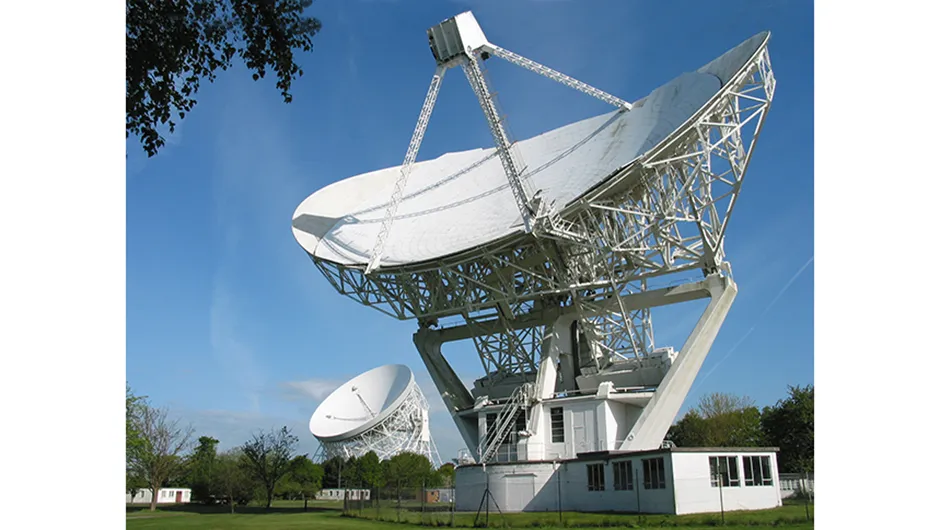
Radio astronomy and later life
Meanwhile, the Jodrell Bank telescope was doing pioneering work and continued to do so for more than 50 years.
Lovell remained as observatory director right up until his retirement in 1981, and the telescope was officially renamed the Lovell Telescope in 1987.
It was joined by a second telescope, the Mk II Radio Telescope, and this too is still in use.
Today, of course, radio astronomy is one of the major branches of astronomical science and it is true to say that we would not have advanced as much as we have done if it were not for Lovell’s work.
He was busy day and night. He found it difficult to find enough time for cricket, music and his family; however, he did manage to write several books.
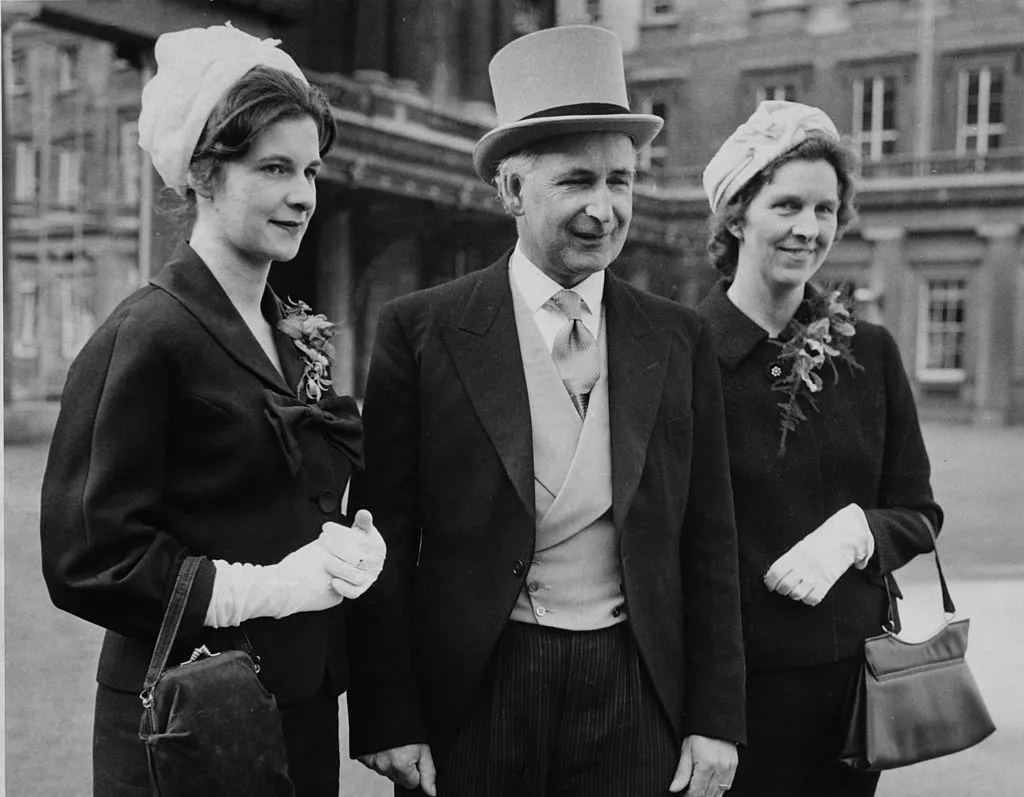
He became an OBE in 1946 and was elected a Fellow of the Royal Society in 1955; in 1961 he was knighted, and he was awarded the Royal Astronomical Society’s Gold Medal in 1981.
He remained active until the end of his life. His home life was very happy and he had friends and colleagues all over the world.
Lovell was, it’s certainly true to say, the ‘father of radio astronomy’.
If asked to choose the most outstanding scientist of modern times many people, including myself, would vote for Bernard Lovell.
I first met him when I was in my teens and we kept in touch regularly. I am proud to have known him – there has been no-one quite like him, before or since.
This article appeared in the October 2012 issue of BBC Sky at Night Magazine
